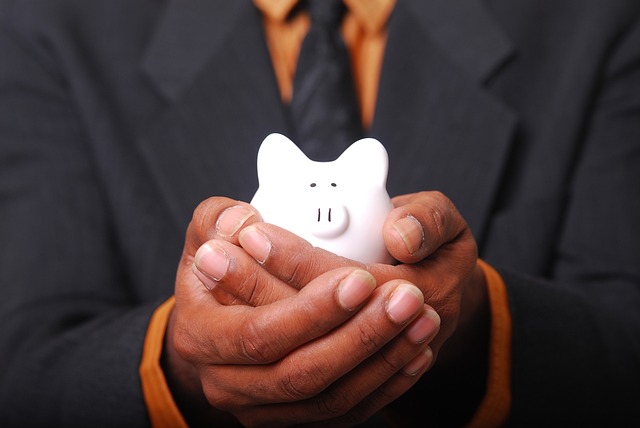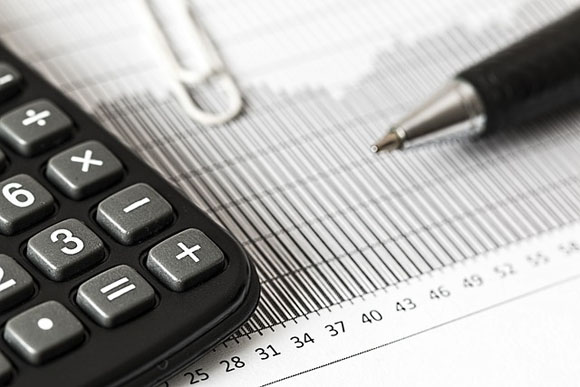Cuidar las finanzas | Taking care of finances

El manejo inadecuado de las finanzas es una de las primeras causas del fracaso en los emprendimientos.
Las razones relacionadas con este tema pueden ser muy variadas. A veces no está disponible, o por lo menos a nuestro alcance, un buen repertorio de opciones de financiamiento. No se cuentan con créditos bancarios ni con amigos inversionistas que quieran apostar sus recursos a la idea que nos ronda por la mente.
Puede ocurrir también que las condiciones del entorno no sean las más favorables. Por ejemplo, nos puede toca trabajar en un momento de alta incertidumbre, con condiciones impredecibles relacionadas con la inestabilidad monetaria, problemas cambiarios y cuestiones similares.
Pensamos que a nuestro espíritu emprendedor nada lo puede detener y que nuestro ingenio, dedicación y tenacidad será suficiente para poner a nuestro favor cualquier condición por difícil que pueda verse.
Sin embargo, cualquier dosis de optimismo debe confrontarse con algunas cuentas mínimas. Es un poco temerario lanzarse al ruedo cuando nuestros recursos monetarios sean insuficientes.

Esto no quiere decir que tengamos que esperar eternamente hasta que nuestras condiciones financieras sean las más favorables. Pero es demasiado importante sopesar con cabeza fría cada paso que vayamos a dar, tomando siempre la realidad de nuestros ingresos.
Cuando Daniel, un joven amigo emprendedor, me habló de su idea de arrancar un pequeño negocio del ramo ferretero me pareció que estaba bien encaminado.
Su idea no nacía de un capricho o de una vana ilusión. Su oferta estaba destinada a resolver una necesidad real.
En la zona donde pensaba operar su negocio no había ninguna ferretería, y estaba ubicada en un área residencial donde son bastante altas las probabilidades de demandas de productos de ese ramo.
Todos sabemos que en los hogares siempre hay que hacer trabajos de mantenimiento, y a veces las emergencias se presentan sin aviso en los momentos menos indicados. Así que pensar que en ese sitio habría demanda de productos ferreteros no estaba fuera de la realidad.
Daniel echó manos a sus ahorros y arrancó su negocio, casi todo su capital lo invirtió en comprar el mobiliario mínimo para exhibir los productos, tuvo la suerte de contar con unos proveedores que le financiaban la mercancía por un máximo de veinte días.
Durante las primeras semanas el negocio se movió bastante bien, hubo momentos en que incluso se quedó corto de inventarios con algunos productos. Esas primeras semanas le sirvieron para estimar con más precisión la rotación de la mercancía, sabía cuáles productos tenían más demanda y cuáles eran más duros de vender.
Para el sexto mes ya tenía un buen volumen de ventas, había logrado ahorrar un poco de capital y se decidió a hacer una remodelación del local, un paso arriesgado porque significaba tener que cerrar unos días y hacer frente al pago del alquiler.

Pero esta limitación pudo sortearla sin mayores inconvenientes. Logró un acuerdo con los dueños del local y estos le dieron un mes de gracia mientras hacía la remodelación. Además, le reconocerían los gastos que hiciera en la remodelación, y se lo descontarían del pago del alquiler.
Por mala suerte los inicios de los trabajos coincidieron con un ciclo de acelerada devaluación, esto hizo que el capital estimado para la obra se volviera insuficiente. Daniel no había considerado esa posibilidad y había comenzado la remodelación con los recursos mínimos necesarios, no estaba preparado para las contingencias.
Por si eso fuera poco uno de sus hijos tuvo una aparatosa caída en la bicicleta, lo que amerito una cirugía en el tobillo. Esta situación terminó de consumir los pocos ahorros que le quedaban.
Luego de dos meses con la ferretería cerrada, sin concluir los trabajos de remodelación, la situación de Daniel está bastante comprometida. Sabe que si logra reactivar el negocio tendrá la posibilidad de salir adelante. Pero no ha logrado conseguir los préstamos que le permitan reiniciar sus actividades.
Nadie puede prever que un muchacho se caiga de la bicicleta y se rompa un tobillo, eso es totalmente imponderable. Sí es más fácil considerar la cercanía de un ciclo de devaluación.
Quizá Daniel se apresuró con el asunto de la remodelación, quizá debió esperar a que sus finanzas estuvieran más fortalecidas, lo que le permitiera la posibilidad de tener un mayor colchón financiero.
Pero como solemos decir, a lo hecho pecho. Ojalá en el corto plazo pueda encontrar el préstamo que tanto necesita para recuperar su negocio.
El aspecto financiero es demasiado esencial para la buena salud de los negocios. No se descuiden con eso.
Gracias por tu tiempo.


Inadequate management of finances is one of the first causes of failure in business ventures.
The reasons related to this issue can be very varied. Sometimes a good repertoire of financing options is not available, or at least not within our reach. We do not have bank loans or investor friends who want to bet their resources on the idea we have in mind.
It may also happen that the environmental conditions are not the most favorable. For example, we may be working at a time of high uncertainty, with unpredictable conditions related to monetary instability, exchange rate problems and similar issues.
We think that nothing can stop our entrepreneurial spirit and that our ingenuity, dedication and tenacity will be enough to turn any condition in our favor, no matter how difficult it may seem.
However, any dose of optimism must be confronted with some minimum accounts. It is a bit foolhardy to jump into the fray when our monetary resources are insufficient.

This does not mean that we have to wait forever until our financial conditions are the most favorable. But it is all too important to weigh each step we take with a cool head, always taking into account the reality of our income.
When Daniel, a young entrepreneurial friend of mine, told me about his idea of starting a small hardware business, I thought he was on the right track.
His idea was not born out of a whim or a vain illusion. His offer was aimed at solving a real need.
In the area where he planned to operate his business there was no hardware store, and it was located in a residential area where the probability of demand for hardware products is quite high.
We all know that in homes there is always maintenance work to be done, and sometimes emergencies arise without warning at the most inopportune times. So the thought that there would be a demand for hardware products at this site was not out of the question.
Daniel dug into his savings and started his business, almost all of his capital was invested in buying the minimum furniture to display the products, he was lucky to have some suppliers who financed the merchandise for a maximum of twenty days.
During the first weeks the business moved quite well, there were times when he was even short of inventory with some products. Those first weeks helped him to estimate more accurately the rotation of the merchandise, he knew which products were more in demand and which were harder to sell.
By the sixth month he had a good volume of sales, had managed to save some capital and decided to remodel the store, a risky step because it meant having to close for a few days and pay the rent.
But he was able to overcome this limitation without major inconveniences. He reached an agreement with the owners of the premises and they gave him a month's grace period while he did the remodeling. In addition, they would recognize the expenses incurred in the remodeling, and would deduct them from the rent payment.

As bad luck would have it, the beginning of the work coincided with a cycle of accelerated devaluation, which caused the estimated capital for the work to become insufficient. Daniel had not considered this possibility and had started the remodeling with the minimum necessary resources, he was not prepared for contingencies.
As if that were not enough, one of his sons had a serious fall on his bicycle, which required ankle surgery. This situation ended up consuming the little savings he had left.
After two months with the hardware store closed, without finishing the remodeling work, Daniel's situation is quite compromised. He knows that if he can reactivate the business he will have a chance to get ahead. But he has not been able to get the loans that would allow him to restart his business.
No one can foresee that a young man will fall off his bicycle and break his ankle; that is totally imponderable. It is easier to consider the proximity of a devaluation cycle.
Perhaps Daniel rushed the remodeling, perhaps he should have waited until his finances were stronger, which would allow him the possibility of having a greater financial cushion.
But as we usually say, what is done is done. Hopefully in the short term you will be able to find the loan you so desperately need to get your business back on track.
The financial aspect is all too essential to a healthy business. Don't be careless with that.
Thank you for your time.
Translated with DeepL.com (free version)








Comunidad Be Entrepreneur

No es fácil tener un negocio con la inestabilidad de la moneda y con este tipo de situaciones que se presentan de forma imprevista, pienso que como era un negocio que estaba comenzando, debió esperar que se consolidará un poco más, para hacer las remodelación que implicó un mayor gasto, saludos amigo.
Ciertamente, los imprevistos están a la orden día y los relacionados con la financiación pueden llegar a ser determinante para la salud de un emprendimiento. A veces hay que aprender a esperar y priorizar.
Creo que la educación financiera debería ser una asignatura para todos desde niños, en mi caso, estoy aprendiendo porque saber gastar siempre es más sencillo.
We need to always pay close attention to our finances. It is really needed because our finances really made us